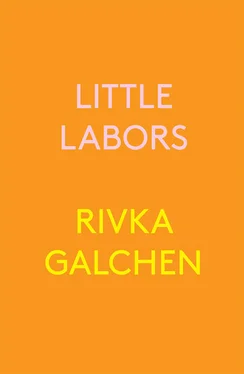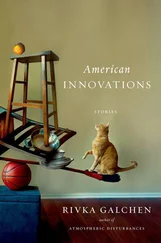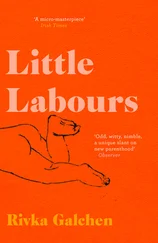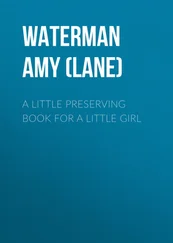Rivka Galchen - Little Labors
Здесь есть возможность читать онлайн «Rivka Galchen - Little Labors» весь текст электронной книги совершенно бесплатно (целиком полную версию без сокращений). В некоторых случаях можно слушать аудио, скачать через торрент в формате fb2 и присутствует краткое содержание. Год выпуска: 2016, Издательство: New Directions, Жанр: Публицистика, Критика, на английском языке. Описание произведения, (предисловие) а так же отзывы посетителей доступны на портале библиотеки ЛибКат.
- Название:Little Labors
- Автор:
- Издательство:New Directions
- Жанр:
- Год:2016
- ISBN:нет данных
- Рейтинг книги:5 / 5. Голосов: 1
-
Избранное:Добавить в избранное
- Отзывы:
-
Ваша оценка:
- 100
- 1
- 2
- 3
- 4
- 5
Little Labors: краткое содержание, описание и аннотация
Предлагаем к чтению аннотацию, описание, краткое содержание или предисловие (зависит от того, что написал сам автор книги «Little Labors»). Если вы не нашли необходимую информацию о книге — напишите в комментариях, мы постараемся отыскать её.
—a key inspiration for Rivka Galchen’s new book — contains a list of “Things That Make One Nervous.” And wouldn’t the blessed event top almost anyone’s list?
Little Labors
Genji
The Pillow Book
Little Labors — atomized and exploratory, conceptually byzantine and freshly forthright — delights.
Little Labors — читать онлайн бесплатно полную книгу (весь текст) целиком
Ниже представлен текст книги, разбитый по страницам. Система сохранения места последней прочитанной страницы, позволяет с удобством читать онлайн бесплатно книгу «Little Labors», без необходимости каждый раз заново искать на чём Вы остановились. Поставьте закладку, и сможете в любой момент перейти на страницу, на которой закончили чтение.
Интервал:
Закладка:
Screens
The resolution is that the baby will have no relationship to screens — no iPhones, no iPads, no televisions, none of whatever it is that’s out there. “You have to get her a video machine,” my mother said, referring to her understanding of what technology might be out there. “You need to get her some programming, maybe in French,” my brother said. When I was young there was a desperate imperative to get computers into schools. Nowadays I read of studies that show that laptops given to children in rural African villages have ruined students’ education, the kids’ grades fall, the kids drop out. Another day I read that children who have a lot of “screen time” experience schematic diagrams of corners differently than children with little or no screen time. The implications of alternative ways of understanding diagrams of corners is obscure to me, but it seems important nevertheless. Maybe even paramount. I also read that children who cease to use screens for a time as short as one week make more eye contact and score better on tests of reading emotions on the faces of others. Sure, “studies” is usually just another word for mildly evidenced nonsense, but there they are. I myself spent eight or nine hours a day as a child watching television, mostly reruns of sitcoms. Though I am not a completely empty soul, I do feel that I could be improved upon. My child will not have screens, I decide. Not for a long time. Yet somehow, by the time she is one year old, my daughter can play music, page through photos, and call long distance on my iObject. This development happens off-screen.
iPhone footage
iPhone footage of the puma has the unfortunate quality of making it seem as if the puma has passed away and the watcher, me, is condemned to replaying the same scene again and again and again. The more banal the scene, the more intense this effect. Footage of her crawling across a room to pick up a toy skateboard and then eat a piece of strawberry — a heartrending seven-second loop. I imagine this has to do with some sort of intensified sensation of time passing, brought about by being in touch with the illusion of time standing still. Or with boredom, or hostility, or love. But I discover that the affective qualities of loops are different for the puma. When she watches the same footage again and again and again she looks like someone who has been given access to a holy book and is not afraid of the messages it bears.
Lots of writers have children
Sometimes those children write memoirs. It is rare that the memoirs are happy memoirs. This may say more about the nature of memoirs than the nature of being the child of a writer. (Whether being the child of a writer is really any worse than being the child of an accountant professor grocer realtor regulator will remain difficult to say since selection bias — children of writers more likely to write — makes memoirs, in relation to this question, a more than usually problematic dataset.) There is a certain consistency of complaint, I have noticed, among these memoirs: the child comes to show something to the writer-parent, who is writing in a room at home during the daytime hours, and the writer-parent says to the child, I can’t right now, I’m working. There are also often descriptions of the looming, hostile, uncompromising door of the home office. Apparently it is very troubling for children to see their parents working, at least doing the kind of work that does not make itself visibly obvious, even if the total hours of work, and thus parental unavailability, are equal (or more likely substantially less) than the working hours of a parent simply leaving the house, to go, say, to an office, where the equally mysterious work of “office work” is, in the child’s imagination, if they are interested in the imagining, done. Presumably these doors are simply the wrong doors on which to be knocking. I have consistently had a difficult time believing these memoirs, not that one has to believe memoirs, or that belief is what memoirs are there for. But the door seems like an obvious screen door. But screen for what?
I have never been the child of a writer, nor been a writer who had a child. (Being a writer who has a baby is really nothing like being a writer who has a child.) But I was once taking care of a three-year-old child, my niece, while I had no choice but to, in at least a minimal way, be working as a writer at the same time. It was the first time I was having a story of mine published in a major magazine, and I had to go over edits on the phone at a specific time, a time which overlapped with my picking up my niece from her preschool and then passing a couple hours with her, in a nearby Starbucks, until her parents were home — I didn’t have a key to their apartment. My niece was and is an unusually easy, flexible child. I took her to the designated Starbucks, though the original reason for going to the Starbucks, which was Internet access (this was more than a decade ago), proved dysfunctional that afternoon. Regardless, I opened my laptop and tried to take the editorial call. It was a call, then calls back, it was going back and forth. My niece was annoyed that I wasn’t speaking only to her. I promised I would speak with her soon. I continued to speak on the phone, with the editor. At one point, in between phone calls, my niece told me she wanted to go to the bathroom, so I brought her to the bathroom. Once were in the narrow stall, she took my phone from my coat pocket and threw it in the toilet. The phone did not work after that.
It is nice for children when their parents have offices outside of the home and are not seen to be doing work, I note to myself today, as the puma weeps while I speak on the cellphone, briefly, for work.
In Flagstaff, one
I am outside with the young chicken, in front of our conspicuously nice rental in Flagstaff, Arizona. The rental is an assemblage of shipping containers, insulated by a special ecologically sound paint, and oriented just so to the sun, etc., and on the sidewalk in the distance, I see a woman approaching with her two young daughters, who are dressed beautifully. There’s also a man, a few paces behind her, carrying an open cardboard box of canned and boxed goods. The man waves, somehow too soon, from too far away, and too familiarly. It’s weird. It makes him seem drunk or high. I wave back. A short time later, the woman waves too, as do the children, who, as they near, approach the young chicken with interest; the young chicken is shy with them. The older girl kneels down to be on a level with the young chicken; she asks her mother if she can give the little girl one of her gummy bears; the mother tells me that the gummy bears are organic; the chicken doesn’t take the gummy bear, and the mother tells her daughters not to worry about it, that not everyone likes gummy bears. The girls are Kaysia and Shalia, the mother says, they are three and seven. The man is standing a few feet off, grinning widely. The mother asks me if I live around here and I say that I don’t, and then I ask her if she lives around here and she says that it’s complicated. The children, along with the chicken, have wandered about ten feet away, to the driveway of our rental, and their mother is explaining to me that although she was born in Pennsylvania, she was kidnapped by her mom when she was eleven months old, after which they lived in Canada, in Mexico, eventually in Los Angeles, until, when she was three and a half years old, the authorities caught up with them. “My brother thought my dad was a ghost,” she tells me, laughing. Then they returned to Pennsylvania, lived with their dad. Her mother was in jail in Pennsylvania, so they could visit her. I didn’t know what to say. I asked the woman, How were things now with her parents, did she get along with them? She said that in the past year her dad had died, and that her mom is in Phoenix, dying of cancer, she is taking care of her, it has been a difficult year; she said that the father of her youngest was suing her for $10,000 in court, and she couldn’t afford that, she is still a university student, studying to be a math teacher, she loves math, always has, she lives in Phoenix now, not here, she is just in Flagstaff to visit her old friend, Ray; at this, she gestured to the man with the box who was still standing a few feet away. He was still grinning, and he still didn’t approach. The mother is an unusually pretty woman. Somehow we are still standing there, together. The chemical equation between us seems to be off, as if atoms are going to shift from one side to the other, because that is the law. It has to balance out. She’s still chatting and chatting. Then I hear my daughter crying. She is lying on her back on the pavement of the driveway. The two young girls are looking at their mother, and at me. The older girl says, We were trying to help her stand up again and that was when she fell over.
Читать дальшеИнтервал:
Закладка:
Похожие книги на «Little Labors»
Представляем Вашему вниманию похожие книги на «Little Labors» списком для выбора. Мы отобрали схожую по названию и смыслу литературу в надежде предоставить читателям больше вариантов отыскать новые, интересные, ещё непрочитанные произведения.
Обсуждение, отзывы о книге «Little Labors» и просто собственные мнения читателей. Оставьте ваши комментарии, напишите, что Вы думаете о произведении, его смысле или главных героях. Укажите что конкретно понравилось, а что нет, и почему Вы так считаете.












